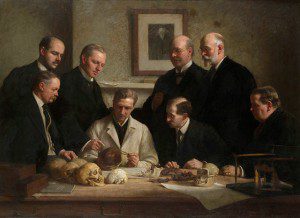
(Please click to enlarge.)
I’m a great believer in peer review.
I think that, although it’s not indispensable — a great piece of work remains a great piece of work whether it’s been approved by two or three peer-reviewers or not (as in the cases, for example, of Newton’s Principia, Mendel’s papers on genetics, Darwin’s Origin of Species, and Einstein’s initial article on special relativity) — it’s extremely useful, and particularly helpful to editors.
But it’s not all-powerful. It wields no messianic powers. Errors and falsehoods often pass muster quite easily, as an increasing number of observers are noting:
http://www.nytimes.com/2015/06/16/science/retractions-coming-out-from-under-science-rug.html?_r=1
I’m also a big fan of science. Had my eyesight been better (who knows?), I might have become an astronomer. But science is a fallible human enterprise, subject to the limitations — intellectual, physical, and, yes, moral — of the particular class of humans called scientists.
The 1912 “Piltdown Man” hoax, which wasn’t definitively exposed as a hoax until more than four decades later, in 1953, is far and away not the only instance of flat-out fraud in the sciences.
That’s not an attack on science. History, literary studies, philosophy, archaeology, sociology, anthropology, psychology — these fields, too, are subject to those same intellectual, physical, and moral limitations, as is every other area of human endeavor. We’re a flawed and bumbling lot.
We simply need to remember this. Humility has its place.











